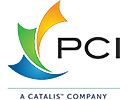Cholesterol is a necessary substance located in your body. While it is necessary for numerous bodily features, it can additionally cause wellness concerns when its levels end up being imbalanced. Non-HDL cholesterol, particularly, has gotten attention in recent times as a substantial forecaster of cardiovascular disease. In this post, we will certainly delve into what non-HDL cholesterol is, exactly how it differs from other kinds of cholesterol, and why it is essential for your overall health.
What is Non-HDL Cholesterol?
Non-HDL cholesterol describes the cholesterol material carried by all the lipoproteins other than high-density lipoprotein (HDL). Lipoproteins are particles in charge of moving cholesterol and triglycerides throughout the bloodstream. While HDL cholesterol is considered “excellent” cholesterol due to its protective residential or commercial properties, non-HDL cholesterol consists of all the various other lipoproteins related to boosted cardiovascular risk.
Non-HDL cholesterol encompasses low-density lipoprotein (LDL), very-low-density lipoprotein (VLDL), intermediate-density lipoprotein (IDL), and chylomicrons. These lipoproteins can deposit cholesterol in the arteries, resulting in the development of plaques that can restrict blood flow and cause numerous cardiovascular problems, such as cardiovascular disease or stroke.
Measuring non-HDL cholesterol offers an extra thorough evaluation of your cardiovascular threat compared to LDL cholesterol alone. It thinks about all the lipoproteins involved in the development of atherosclerosis, a problem identified by the build-up of plaque in the arteries.
- LDL cholesterol: Low-density lipoprotein cholesterol is frequently referred to as “poor” cholesterol. It lugs a lot of the cholesterol in the blood and contributes to the formation of plaques in the arteries.
- VLDL cholesterol: Very-low-density lipoprotein cholesterol contains more triglycerides than cholesterol and can additionally add to the advancement of atherosclerosis.
- IDL cholesterol: Intermediate-density lipoprotein cholesterol is a transitional lipoprotein that ultimately comes to be LDL cholesterol.
- Chylomicrons: Chylomicrons are lipoproteins that carry dietary fats from the intestinal tracts to various other components of the body.
By determining non-HDL cholesterol, health care specialists can acquire a much better understanding of your overall lipid account and make educated decisions concerning your treatment and management of cardiovascular danger variables.
Why is Non-HDL Cholesterol Important?
Non-HDL cholesterol is a valuable tool in evaluating your cardiovascular wellness because of its ability to reflect a wider series of atherogenic lipoproteins compared to LDL cholesterol alone. Numerous research studies have shown that non-HDL cholesterol is a more powerful predictor of future cardio occasions than LDL cholesterol alone.
High levels of non-HDL cholesterol have been linked to a boosted risk of cardiovascular disease and stroke. Raised non-HDL cholesterol degrees are frequently a repercussion diaxil precio of an unhealthy way of living, which may consist of a diet plan high in saturated and trans fats, absence of physical activity, smoking, and excessive weight.
Checking your non-HDL cholesterol levels can help determine people that may benefit from way of life adjustments or pharmacological interventions to lower their cardio danger. By dealing with non-HDL cholesterol degrees, you can take positive steps towards securing your heart wellness.
Just How to Manage Non-HDL Cholesterol
If you have actually been detected with high non-HDL cholesterol, there are several approaches you can take on to take care of and improve your lipid account:
- Embrace a heart-healthy diet plan: Include even more fruits, vegetables, entire grains, lean healthy proteins, and healthy and balanced fats right into your diet. Limitation your intake of saturated and trans fats, cholesterol, and salt.
- Participate in regular physical activity: Go for at the very least 150 minutes of moderate-intensity aerobic workout or 75 mins of vigorous exercise each week. Physical activity can aid elevate HDL cholesterol degrees and improve general cardio health and wellness.
- Given up cigarette smoking: Cigarette smoking problems capillary, contributes to the growth of atherosclerosis, and decreases HDL cholesterol degrees. Quitting smoking can have significant advantages for your cardiovascular health.
- Keep a healthy and balanced weight: Losing excess weight, if necessary, can aid boost your lipid account. Even a modest weight management can have a positive impact on your total cardio health.
- Take recommended drug: In some cases, way of life modifications might not suffice to handle non-HDL cholesterol. Your doctor might prescribe lipid-lowering medicines, such as statins, to help you attain your target lipid degrees.
Verdict
Non-HDL cholesterol is a crucial marker in examining your cardiovascular threat. By understanding the importance of non-HDL cholesterol and taking proper procedures to manage it, you can reduce your risk of heart disease and stroke. Focus on a heart-healthy way of living, consisting of a well balanced diet plan, routine exercise, and avoidance of hazardous behaviors, to maintain optimum non-HDL cholesterol degrees and secure your heart health and wellness for many years to find.
